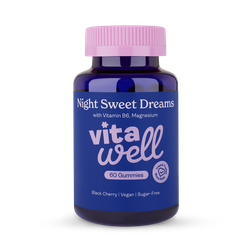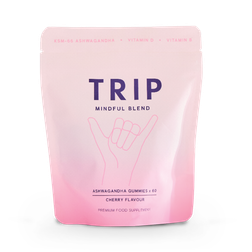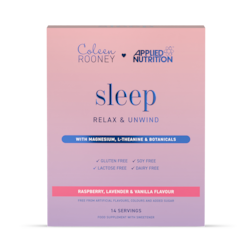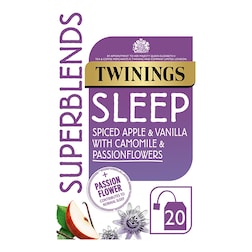15% off £25 or 20% off £35
Code:BASKET
What time is it? How to adjust when the clocks change

Out of sync when the clocks change? Don’t lose sleep over it! Let’s look at why it messes with your routine and how you can adjust like a pro
Summary
1When do the clocks go back?
In the UK the clocks go back one hour at 2am on the last Sunday in October...
2Why do the clocks change?
In the early 1900s, a builder called William Willett proposed that the clocks change...
3Our top products to help you drift off
If you're still tossing and turning, don’t worry – we've got a dreamy selection of products...
Are you more likely to spring into action or fall back to sleep? When the clocks “fall back”, we gain an hour of precious morning sleep – but sacrifice it for darker evenings. But does this small shift in time really have a bigger impact on us than we think?
As the seasons shift, so do our schedules – bringing us to question how even one hour can throw us off. Is it the jolt we need for a brighter wake-up or just leave us feeling blue come 5pm?
Let’s pull back the covers on this phenomenon and explore how the time change really affects our minds and bodies.
When do the clocks go back?
In the UK the clocks go back one hour at 2am on the last Sunday in October. This year, that falls on the 26th.
When the clocks go back, the UK’s on Greenwich Mean Time (GMT).1
Why do the clocks change?
History lesson incoming. In the early 1900s, a builder called William Willett proposed that the clocks change in summer and winter to allow more daylight.2
By doing this, UK citizens would have one more hour of light in the darker months (the story goes that Willett wanted more time to play golf on winter evenings... but of course, there are many other theories floating around and we may never know what his reason was).2
Willett’s campaign wasn’t too successful during his lifetime, but after the First World War, Germany adopted this idea. The UK followed in 1916, with the government introducing British Summer Time, and the clocks have changed twice a year ever since.
How do the clocks changing impact our mood?
When the clocks change for Daylight Saving Time (DST) and Greenwich Mean Time (GMT), your circadian rhythm – the natural body clock that runs on a 24-hour cycle – can get a shake-up. This sudden time shift may mess with your sleep, mood and productivity, leaving you feeling a little off balance.3,4
Your circadian rhythm’s like an internal guide, syncing with light and dark to regulate everything from mental sharpness to physical health.3 It’s not just for humans – animals, plants and even microbes follow their own internal clocks too.5
So, when that hour shifts, your body might struggle to adjust and it could leave you feeling sluggish. But don’t worry, we’ve got tips to help you get back in sync and fall back with ease:
- practice good sleep hygiene: this includes habits and your environment, as they can all influence sleep for better or worse. Try keeping your bedroom cool, quiet and dark, avoiding screens for at least 30 minutes before bed
- create a consistent sleep routine: going to bed and waking up at the same time every day helps regulate your body’s internal clock (circadian rhythm). This helps promote better quality sleep and makes falling asleep and waking up easier 6
- gradually alter your bedtime routine: if you need to shift your sleep schedule do so gradually – by about 15 to 30 minutes each night. A slow, steady transition allows your body to adapt 7
- spend time outdoors: exposure to sunlight during the day helps signal to your body when it should be awake and when it’s time to wind down at night. Research shows that getting outside, especially in the morning, can improve sleep quality 8
- nap in moderation: short naps (20-30 minutes) earlier in the day are ideal for supporting energy without affecting nighttime sleep. Studies suggest that longer naps or naps taken too close to bedtime may lead to you feeling groggier and disrupt your nighttime rest 9
- avoid caffeine too close to bedtime: that goes for dark chocolate too. Caffeine can delay you getting to sleep and in some people it can take up to six hours for the effects of caffeine to wear off 10
How to adjust kids’ bedtimes for Daylight Savings
OK: bedtime’s usually 8pm, but when the clocks change that’s technically still only 7pm. What to do?
You’ve got two choices: either transition gradually for a few days or go cold turkey. We’ll use the example of 8 o’clock, but adjust these depending on your child’s bedtime.
If you want a gradual transition, make that first bedtime 9pm (technically still 8) and get earlier by 10-15 minutes each night.
Prefer things quick? Make the transition immediately, sending them to bed at the new 8pm. It might mean a few gripes (especially if they’re old enough to realise what’s going on), but following good sleep hygiene – like keeping the room dark – will help them drift off.
There’s a chance they’ll wake up an hour earlier than usual, though, so be prepared!
Our top products for your bedtime routine
If you're still tossing and turning, don’t worry – we've got a dreamy selection of products to give you a hand.
In an ideal world, we’d all have an elaborate sleep ritual: a warm bath; a nightly meditation; feather-soft fresh bedding.
While these gummies can’t replicate that, they can be a good addition to your evening, with magnesium to help reduce tiredness and fatigue.11
The one-a-day Night Sweet Dreams Gummies are formulated with vitamin B6, which contributes to normal psychological function and the regulation of hormonal activity.12,13
Botanical extracts lavender, chamomile and lemon balm make this a combo designed for the ultimate sleepytime routine. Oh, and the black cherry flavour feels like a grown-up take on your standard gummy.
You might know TRIP for their CBD-infused drinks, but big news: they’ve branched out into gummies too.
These “mindful blend” chews swap CBD for ashwagandha, an adaptogenic herb. The science on ashwagandha’s still emerging, but we can shout about the vitamins in these gummies: B6 for normal nervous system function, B12 for normal psychological function and vitamin D to support normal immune health.14,15,16
In TRIP’s words, take two cherry-flavoured gummies daily, or on days when “life gets loud”.
Not one for a hot cocoa? Coleen Rooney’s paired with Applied Nutrition for a bedtime drink that’s fruity and formulated to help you relax.
Raspberry, vanilla and lavender make for a super-elegant flavour combo. But it’s not all about the fancy feel: each sachet contains a blend of ashwagandha, passionflower and valerian.
You’ll also benefit from 100% of your daily B12 (important for normal nervous system and muscle function), as well as 5mg zinc for normal cognitive function and inulin fibre.17,18,19
The travel-sized sachets are perfect for taking on the go, so it’s by your side during nights away. Mix with hot or cold water and drink 30 minutes before you hit the hay.
The changing clocks can mean a bit of extra light: great when you want it, but not so much when you’re trying to get some ZZZs.
Set yourself up for an undisturbed slumber with this bamboo sleep mask.
Silk is out, and bamboo’s the ultimate soft, breathable and vegan alternative. Plus, the Panda London mask has adjustable straps for a barely-there fit and is machine washable to keep nasties at bay.
Not only is it useful for getting a decent night’s kip, but it makes the perfect luxury gift for the beauty lover or jetsetter who’s got it all. We’ve chosen black for the ultimate chic feel, but there’s also Urban Grey and Vintage Pink to choose from.
Unwind and cosy up with the ultimate bedtime brew. This tea combines the sweet, spiced warmth of apple and vanilla, with chamomile and passionflower. Smooth and oh-so-warming, this delightful herbal infusion is the perfect companion to your routine.
Simply pop the teabag in hot water and let the infusions do the rest. Sip and relax...
This spray blends magnesium with the calming scents of chamomile, bergamot and clary sage to help soothe the senses and melt away the day. Perfect for unwinding, it works wonders on your senses and gives your body that relaxing effect.
We suggest spraying generously onto your skin and massaging in – even better after a warm shower or just before you get in bed. Sweet dreams await.
The final say
Feeling a bit more prepared for when the clocks change? We second that... pun intended.
With a newly adjusted morning or night-time routine – and with the help of our recommended products – you’ll be able to adapt round the clock.
For a little extra help, we asked a sleep scientist to weigh in how to fall asleep quicker.
If you really feel out of sync due to these time adjustments, or experience low mood as a result, speak to your GP as they can advise on what's best for you.
Disclaimer - This article provides informational advice and is not a substitute for medical care. Curated by experts for accuracy, we take great care to ensure the information is up-to-date and relevant. However, you should always consult your GP or healthcare professional before using supplements or alternative products, particularly if you have medical conditions or are under supervision.
1. GOV.UK. When do the clocks change? [Internet]. GOV.UK [reviewed 2024 Nov 27; cited 2025 Sep 22]. Available from: https://www.gov.uk/when-do-the-clocks-change
2. Britannica. Daylight Saving Time [Internet]. Britannica [cited 2025 Sep 22]. Available from: https://www.britannica.com/topic/Daylight-Saving-Time#ref91653
3. Rishi MA, Ahmed O, Barrantes Perez JH, Berneking M, Dombrowsky J, Flynn-Evans EE, et al. Daylight saving time: an American Academy of Sleep Medicine position statement. Journal of Clinical Sleep Medicine. 2020 Aug 26;16(10).
4. MONK TH, APLIN LC. Spring and Autumn daylight saving time changes: Studies of adjustment in sleep timings, mood, and efficiency. Ergonomics. 1980 Feb;23(2):167–78.
5. National Institute of General Medical Sciences. Circadian Rhythms [Internet]. National Institute of General Medical Sciences. 2022. Available from: https://nigms.nih.gov/education/fact-sheets/Pages/Circadian-Rhythms.aspx
6. Bumgarner JR, Nelson RJ. Light at Night and Disrupted Circadian Rhythms Alter Physiology and Behavior. Integrative and Comparative Biology. 2021 Mar 31;
7. Pacheco D. Daylight Saving Time - How Time Change Affects Sleep [Internet]. Sleep Foundation. 2020. Available from: https://www.sleepfoundation.org/circadian-rhythm/daylight-saving-time
8. Wood L, Tomlinson M, Pfeiffer J, Walker K, Keith R, Smith T, et al. Time spent outdoors and sleep normality: A preliminary investigation. Population Medicine. 2021 Mar 4;3(March):1–6.
9. Mantua J, Spencer RMC. Exploring the nap paradox: are mid-day sleep bouts a friend or foe? Sleep Medicine [Internet]. 2017 Sep;37:88–97. Available from: https://www.ncbi.nlm.nih.gov/pmc/articles/PMC5598771/
10. Drake C, Roehrs T, Shambroom J, Roth T. Caffeine Effects on Sleep Taken 0, 3, or 6 Hours before Going to Bed. Journal of Clinical Sleep Medicine [Internet]. 2013 Nov 15;09(11). Available from: https://jcsm.aasm.org/doi/10.5664/jcsm.3170
11. European Commission. Characteristics [Internet]. European Commission [cited 2025 Sep 22]. Available from: https://ec.europa.eu/food/food-feed-portal/screen/health-claims/eu-register/details/POL-HC-6401
12. European Commission. Characteristics [Internet]. European Commission [cited 2025 Sep 22]. Available from: https://ec.europa.eu/food/food-feed-portal/screen/health-claims/eu-register/details/POL-HC-6499
13. European Commission. Characteristics [Internet]. European Commission [cited 2025 Sep 22]. Available from: https://ec.europa.eu/food/food-feed-portal/screen/health-claims/eu-register/details/POL-HC-6495
14. European Commission. Characteristics [Internet]. European Commission [cited 2025 Sep 22]. Available from: https://ec.europa.eu/food/food-feed-portal/screen/health-claims/eu-register/details/POL-HC-6492
15. European Commission. Characteristics [Internet]. European Commission [cited 2025 Sep 22]. Available from: https://ec.europa.eu/food/food-feed-portal/screen/health-claims/eu-register/details/POL-HC-6485
16. European Commission. Characteristics [Internet]. European Commission [cited 2025 Sep 22]. Available from: https://ec.europa.eu/food/food-feed-portal/screen/health-claims/eu-register/details/POL-HC-6520
17. European Commission. Characteristics [Internet]. European Commission [cited 2025 Sep 22]. Available from: https://ec.europa.eu/food/food-feed-portal/screen/health-claims/eu-register/details/POL-HC-6404
18. European Commission. Characteristics [Internet]. European Commission [cited 2025 Sep 22]. Available from: https://ec.europa.eu/food/food-feed-portal/screen/health-claims/eu-register/details/POL-HC-6405
19. European Commission. Characteristics [Internet]. European Commission [cited 2025 Sep 22]. Available from: https://ec.europa.eu/food/food-feed-portal/screen/health-claims/eu-register/details/POL-HC-6533


















